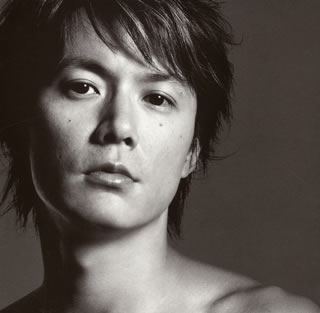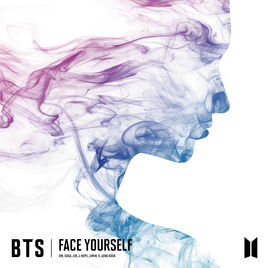
This is the discography of Dir En Grey, a Japanese rock band. They have recorded ten original studio albums, three EPs and twenty nine singles in their twenty-one years together. Each of the band's releases has charted on Japan's Oricon charts.

The discography of Japanese R&B singer Misia consists of nine studio albums, three compilation albums, one extended play (EP), one live album, six remix albums, twenty-six singles, twelve promotional singles, eighteen video albums and thirty-seven music videos. In 1997, Misia signed a recording contract with BMG Japan and joined the then up-and-coming talent agency, Rhythmedia. Under the sub-label Arista Japan, Misia released her first single, "Tsutsumikomu Yō ni..." in February 1998, followed by "Hi no Ataru Basho" in May. In June, her debut album, Mother Father Brother Sister, opened at number three on the Oricon chart. The album peaked at number one three weeks later and stayed in the top five for eleven consecutive weeks. Mother Father Brother Sister was certified double million and won a Japan Record Award for Best Album, as well as a Japan Gold Disc Award for Pop Album of the Year. In 2000, Misia's second studio album, Love Is the Message, debuted at number one and was certified double million. It won a Japan Record Award for Best Album and a Japan Gold Disc Award for Pop Album of the Year. The album spawned three top ten hits: "Believe," "Wasurenai Hibi" and "Sweetness." Misia's first remix album, Misia Remix 2000 Little Tokyo, was released three months later and shot to number one. It sold over 800,000 copies and is the second best-selling remix album of all time in Japan.

Touch Me! is Japanese singer-songwriter Mai Kuraki's eighth studio album, which was released on January 21, 2009, in Japan by her record label Northern Music. The album was released in two formats; the regular single CD version and a limited CD+DVD version, whose content contained a behind the scenes look at the making of the album, as well an interview and clips from her 2008 tour. The album follows the same pattern as "One Life", in which Kuraki collaborated with new composers.

Best Ai is the second compilation album by Japanese singer Ai, released on September 16, 2009. The album was released in three editions: limited CD+DVD, CD only and "Arienai Price" (low-priced) editions. Best Ai debuted at number 2 on the daily Oricon albums chart but switched back and forth between number 1 and number 2 several times during its release week. The album went on to debut atop the weekly albums chart with 81,663 copies sold, beating the second-place holder Takeshi Tsuruno's Tsuruno Oto by merely 1,332 units and becoming her first number-one album.

Identity is Korean singer BoA's seventh Japanese studio album, released on February 10, 2010, nearly two years since The Face.

"Niji/Himawari/Sore ga Subete sa" (虹/ひまわり/それがすべてさ) is the eighteenth single by Japanese artist Masaharu Fukuyama. It was released on 27 August 2003. This single sold around 356,600 copies in its first week. It remained at the number 1 position on the Oricon chart for 5 consecutive weeks, breaking the artist record of four consecutive week from his 1994 single "It's Only Love". Niji was used as the theme song for Fuji Television drama Water Boys and Water Boys 2. "Himawari", written by himself, was originally released as a single sung by Kiyoshi Maekawa in 2002.

"Hey!" is the sixteenth single released by Japanese artist Masaharu Fukuyama. It reached number-one on the Oricon Charts with 187,140 sold in its first week. It was released on October 12, 2000.

"Tokyo" is the twentieth single by Japanese artist Masaharu Fukuyama. It was released on 17 August 2005.

Heartful is the fifth studio album by Japanese pop band AAA. It was released on February 17, 2010, by their label Avex Trax. Three singles were released to promote the album, "Break Down/Break Your Name/Summer Revolution/", "Hide-away", and "Heart and Soul".

This is the discography of South Korean rock band F.T. Island. They debuted in 2007 with Cheerful Sensibility.

"OVER" is a single by Hey! Say! JUMP, released on June 29, 2011. In its first week, "OVER" sold 265,390 copies, over 18,000 more than the first week sales of their single "Ultra Music Power" in 2007, which remains Hey! Say! JUMP's highest selling single to date. It was certified Platinum by the Recording Industry Association of Japan.

Arisa II: Shake Your Body for Me is the second studio album by Japanese recording artist Arisa Mizuki, released through Nippon Columbia on October 1, 1992. Arisa II: Shake Your Body for Me is predominately a pop and dance music album. It is written and produced by an array of famous Japanese musicians, including Anri, Keizō Nakanishi, Takao Konishi, and Tetsuya Komuro.

Fiore is the first compilation album by Japanese recording artist Arisa Mizuki, released through Nippon Columbia on October 1, 1993. The eleven-track set features a selection of songs from Mizuki's first two studio albums, Arisa and Arisa II: Shake Your Body for Me, as well as two original songs. It is Mizuki's first album to include the original versions of both "Densetsu no Shōjo" (1991) and "Too Shy Shy Boy!" (1992).

392 is the second Japanese album by the South Korean rock band CNBlue. The album is the last indie release of the band in Japan, before the group move to Warner Music Japan. The album was released in September 1, 2011.

"Blood on Fire" is the debut single by Japanese pop group AAA. The song was written by Osamu Sasaki and Mitsuhiro Hidaka, and produced by Max Matsuura. The single was released in Japan on September 14, 2005, under Avex Trax in two editions: a CD-only edition, and a CD and DVD edition. "Blood on Fire" debuted at number nine on the weekly Oricon singles chart. The single charted for 19 weeks and went on to sell over 46,000 copies in Japan.

South Korean boy group BTS have released six studio albums, four compilation albums and five extended plays.

"Guts!" is the 43rd single released by Japanese boy band Arashi. It was released on April 30, 2014. "Guts!" was used as the theme song for the drama Yowakutemo Katemasu starring Arashi member Kazunari Ninomiya. It was the sixth best-selling single of the year in Japan, with 604,654 copies. It was certified Double Platinum by the Recording Industry Association of Japan.

South Korean pop group TVXQ, known as Tohoshinki in Japanese releases, have released 71 singles, 15 promotional singles, 9 featured appearances, and 32 soundtrack appearances. The group signed with S.M. Entertainment in 2003 and released their debut single "Hug" in January 2004, peaking at number four on the Monthly Albums Chart of the Music Industry Association of Korea (MIAK). Their following single "The Way U Are", released in June 2004, entered the MIAK Monthly Albums Chart at number one.

"Sakura" is the 45th single by Japanese boy band Arashi. It was released on February 25, 2015 under their record label J Storm. "Sakura" was used as the theme song for the television drama Ouroborous, starring actors Toma Ikuta and Shun Oguri. The single was released in two editions: a first press/limited edition and a regular edition. The first press/limited edition contains the B-side "Rise and Shine" and the music video and making-of for "Sakura" while the regular edition contains two B-sides. The single sold 465,381 copies in its first week and topped the weekly Oricon Singles Chart. With over 520,000 copies sold, the single was certified Double Platinum by the Recording Industry Association of Japan (RIAJ). The single placed 11th on Oricon's 2015 yearly singles ranking.

Face Yourself is the third Japanese studio album by South Korean boy band BTS, which was released on April 4, 2018. It contains Japanese versions of songs previously released on their 2016 Wings album and 2017 Love Yourself: Her EP, as well as three brand new, original Japanese-language tracks: "Don't Leave Me", "Let Go", and "Crystal Snow". Its debut at number 43 on the Billboard 200 made it the third-highest-charting Japanese album in the history of the chart.





















